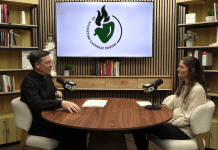|
Getting your Trinity Audio player ready...
|

CAR-T cell therapy is a safe and effective treatment for diffuse large B-cell lymphoma (DLBCL), even for patients regarded as high risk due to comorbidities.
That’s the conclusion of a five-year analysis of results from the U.S. Lymphoma CAR-T Cell Consortium, a group of 17 academic cancer centers in the U.S. Their findings were presented at the American Society of Hematology’s 2023 annual meeting in San Diego.
“CAR-T has caused a paradigm shift in the treatment of patients with diffuse large B-cell lymphoma,” said Jay Y. Spiegel, MD, hematologist-oncologist at Sylvester Comprehensive Cancer Center at the University of Miami Miller School of Medicine and the study’s lead presenter at ASH. “Our findings support the vast potential of this therapy, even for high-risk patients, but highlight the need to maximize survivorship to ensure patients don’t end up dying from other causes.”
The consortium’s retrospective analysis featuring data from the group of top-tier cancer centers looked at five-year outcomes for DLBCL patients receiving CAR-T cell therapy, including those who would not have met eligibility criteria for the ZUMA-1 clinical trial.
Their assessment, which included 298 patients who underwent leukapheresis as part of the CAR-T cell process, also examined risk factors associated with worse survival outcomes, as well as longer-term toxicities and causes of non-relapse mortality.
Findings
The analysis showed similar results to the ZUMA study with median followup of 58 months, despite including high-risk lymphoma patients who were ineligible for that study due to comorbidities — the presence of other medical problems or decreased functional status.
Progression-free survival and overall survival rates at five years were comparable: 28.5 percent and 40.3 percent, respectively. Non-relapse deaths were primarily due to infection or secondary cancers, Spiegel noted.
“We were very encouraged by the results,” said Spiegel, a cellular therapy specialist at Sylvester, which was the seventh-largest data contributor to the study. “Often, results from clinical trials don’t translate to the larger population. But we were sobered by the rates of non-relapse mortality and that is where we need to improve.”
Background
Diffuse large B-cell lymphoma, a fast-growing blood cancer, is the most common form of non-Hodgkin lymphoma. It occurs when genetic changes – mutations – turn healthy cells into cancerous ones and it often affects the lymphatic system.
According to the National Cancer Institute, DLBCL was diagnosed in six of every 100,000 people in 2020, while about 500 in every 100,000 were diagnosed with cancer affecting any part of their bodies.
Frontline therapy for DLBCL includes the monoclonal antibody drug rituximab, three chemotherapy drugs and a drug that helps kill lymphoma cells. This therapy is safe and effective but does not always work or keep the cancer from returning. Some studies show DLBCL relapses or recurs in approximately 40 percent of patients receiving the standard therapy.
Depending on the length of time since completing frontline therapy, that’s when clinicians may turn to CAR-T cell therapy, a type of immunotherapy that genetically reengineers patients’ T cells to help their immune system find and kill the cancerous cells.
With this analysis, physicians – and patients – can be assured that CAR-T cell can impart durable remissions (and hopefully cures) for patients who fail chemotherapy or their lymphoma relapses or recurs, Spiegel said.
He added that CAR-T cell therapy has revolutionized the treatment paradigm for these lymphoma patients, who previously had few options after failure of standard chemotherapy.
“Before CAR-T, we were looking for anything to help put a patient’s disease in remission if they failed chemotherapy,” he explained. “Now, we’re focusing on survivorship outcomes and how we maximize the amount of people we’re curing and get them to live longer and better.”
ABOUT US:
For more Miami community news, look no further than Miami Community Newspapers. This Miami online group of newspapers covers a variety of topics about the local community and beyond. Miami’s Community Newspapers offers daily news, online resources, podcasts and other multimedia content to keep readers informed. With topics ranging from local news to community events, Miami’s Community Newspapers is the ideal source for staying up to date with the latest news and happenings in the area.
This family-owned media company publishes more than a dozen neighborhood publications, magazines, special sections on their websites, newsletters, as well as distributing them in print throughout Miami Dade County from Aventura, Sunny Isles Beach, Miami Beach, Coral Gables, Brickell, Coconut Grove, Pinecrest, South Miami, Kendall, Palmetto Bay, Cutler Bay and Homestead. Each online publication and print editions provide comprehensive coverage of local news, events, business updates, lifestyle features, and local initiatives within its respective community.
Additionally, the newspaper has exclusive Miami community podcasts, providing listeners with an in-depth look into Miami’s culture. Whether you’re looking for local Miami news, or podcasts, Miami’s Community Newspapers has you covered. For more information, be sure to check out: https://communitynewspapers.com.
If you have any questions, feel free to email Michael@communitynewspapers.com or Grant@communitynewspapers.com.





